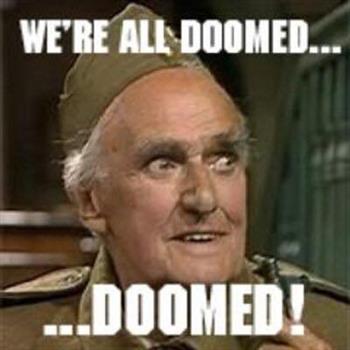
Posted on 11/19/2022 5:02:07 PM PST by Lonesome in Massachussets
The practice of adding ‘leap seconds’ to official clocks to keep them in sync with Earth’s rotation will be put on hold from 2035, the world’s foremost metrology body has decided.
The decision was made by representatives from governments worldwide at the General Conference on Weights and Measures (CGPM) outside Paris on 18 November. It means that from 2035, or possibly earlier, astronomical time (known as UT1) will be allowed to diverge by more than one second from coordinated universal time (UTC), which is based on the steady tick of atomic clocks. Since 1972, whenever the two time systems have drifted apart by more than 0.9 seconds, a leap second has been added.
(Excerpt) Read more at nature.com ...
Well, who saw that coming? We'll lose those newspaper stories about adjusting clocks by one leap second every one or two years. What will leap second bores have to talk about? Of course if clocks ever get too far out of sync with the sun, we may want to reconsider. Maybe add a leap hour?
BTW, currently the earth is rotating faster, threatening to require a future "negative" leap second. Anyone who has ever had to deal with leap seconds professionally (me) should feel a sense of relief. The down side is that with wall clock time no longer quite so precisely tracking the earth's rotation, celestial navigation and astronomy will be affected, but not irreparably. Since the community relying on that agreement is relatively small, and better trained, they should be able to adjust.
Can you explain why you favor this, and why you have to use it in your job?

Finally! I’ve been waiting for this for 200ms.
Now do DST.
The Congress shall have power to … fix the Standard of Weights and Measures …The Congress, not a foreign body such as the International Bureau of Weights and Measures (headquarters Paris, France). Never mind who controls what is now known as coordinated universal time (UTC), that being the International Telecommunications Union, control of which was handed over to the UN in 1949.
— US Constitution, Article I, Section 8, Clause 5
Our grandfather clock loses a minute or two every day so whats another second?
Oh good. It has been really hard staying up until 2 am and trying to push all my clocks forward exactly one second. The analog clocks are the worst.
AND while they are at it standardize the calendar. Dump it and create a new one using modern time standards now that the definition of “one second” has been standardized using the constant of light speed.
I can dream.
Your first sentence is a sentence fragment you have the subject but you don’t say what it should be doing.
The Congress should be doing a lot; they do little.
LOL
My professional involvement was working with different time scales for satellite tracking and missile defense. I was involved in a test with the Missile Defense Agency, where they had a simulated mission, an integrated ground test, involving dozens of contractors, that straddled a leap second. Hilarity ensued. (Our system was fine.) I wrote and implemented the procedure for accounting for leap seconds on a large space-track/missile defense radar. It was klugey but effective. We had at least three time scales active in the radar at any time. In addition, our interface with MDA required that messages be time tagged with UTC time, but track states be time tagged with GPS time. (GPS time is a time scale that lags TAI - international atomic time - by 19 seconds.) UTC is offset from TAI by an integer number of leap seconds.
A further complication is satellite tracking. We are rated and compensated (paid) by the number and quality of satellite tracks we produce. We depend on NORAD two-line element sets (TLE) for acquisition. TLE express time as days since midnight January 1st, to eight decimal places, better than a millisecond precision. Noon on January 2 is 1.50000000. The time scale is UT (which one they don’t say, but apparently UT1). We generally only spend one second looking, and we only keep track of UTC, so the offset which is often more than half a second is a large part of our budget. On top of that TLE are only accurate to about 5 km, and satellites can move at 7 km/sec, so any slop in time scales can be costly.
Other than that, no concerns.
Not OP, but precise time measurements are useful in several industries. For some folks, like if you have to communicate with GPS satellites, work on high speed trades on the stock market, or keep cell towers operating correctly. Usually it has something to do with measuring the speed or the distance messages travel between two points. If you know the time a message is sent and received, you can make calculations about distance or speed from that information.
For most people though, it's ok if your truck's clock is off by an hour six months out of the year because you don't know how to reset it for daylight saving time.
You guys are the ones who are always late, right?
:)
Leap seconds are a complication for computer networks.
At least this will cease before the 2038 Epochalypse.
https://en.wikipedia.org/wiki/Year_2038_problem
It can’t be because the Earth’s rotation is slowing down, right?
Which means the Earth’s rotation was faster and also means the Earth can’t be billions of years old...
Disclaimer: Opinions posted on Free Republic are those of the individual posters and do not necessarily represent the opinion of Free Republic or its management. All materials posted herein are protected by copyright law and the exemption for fair use of copyrighted works.